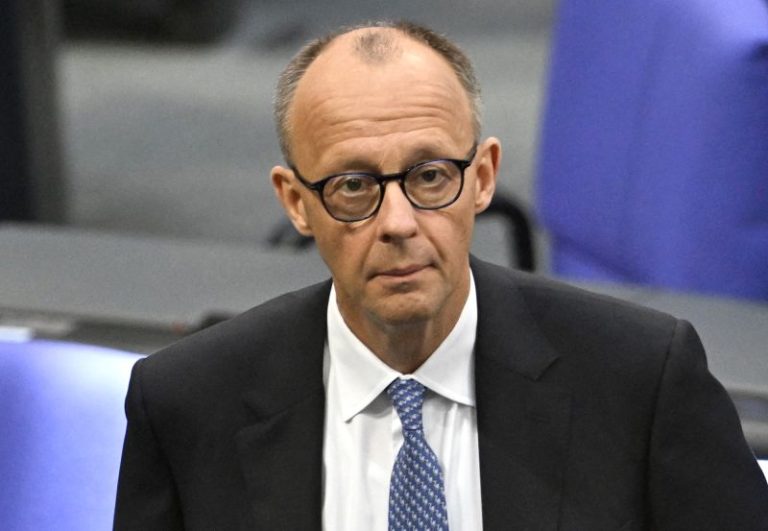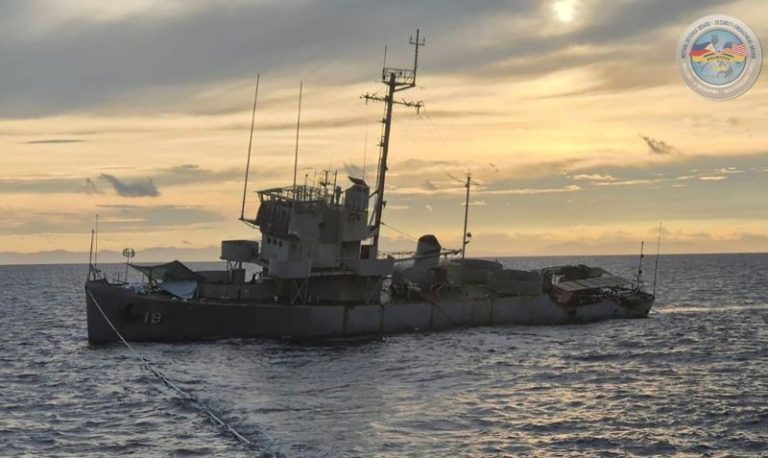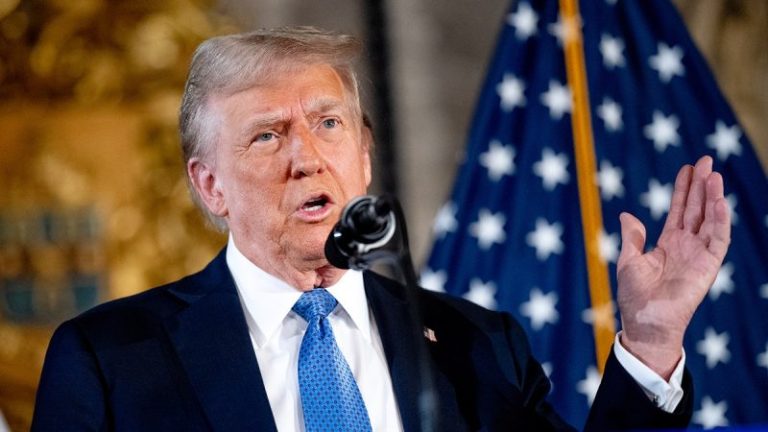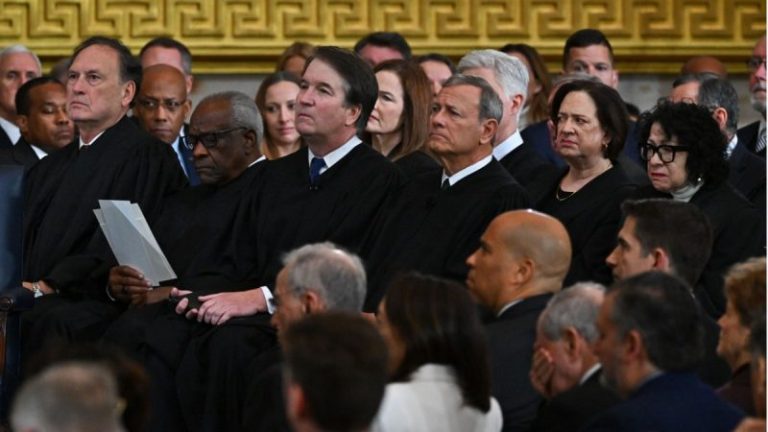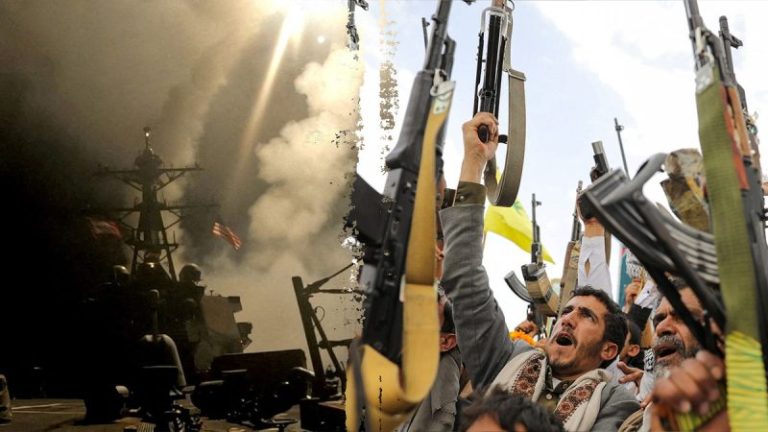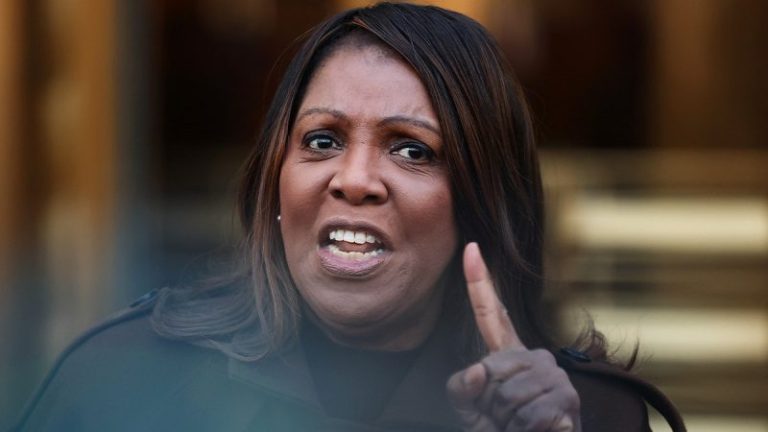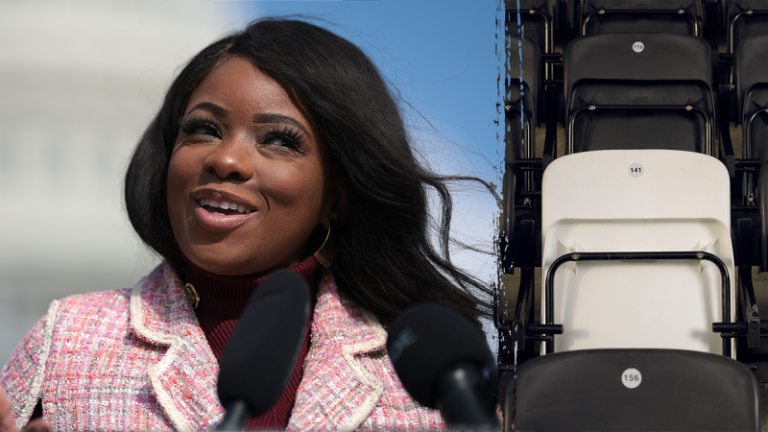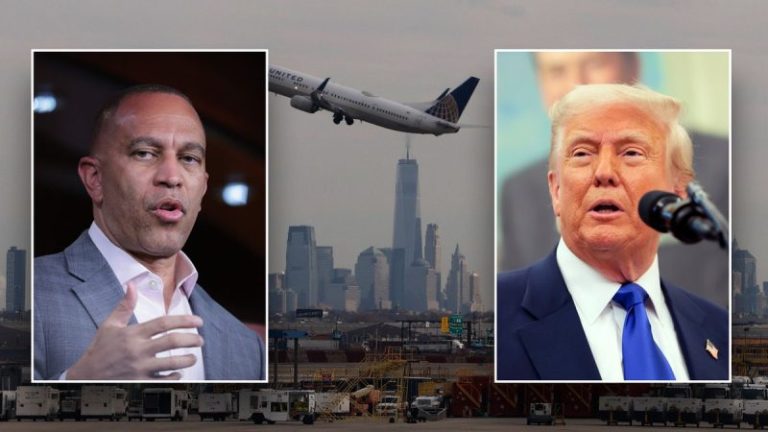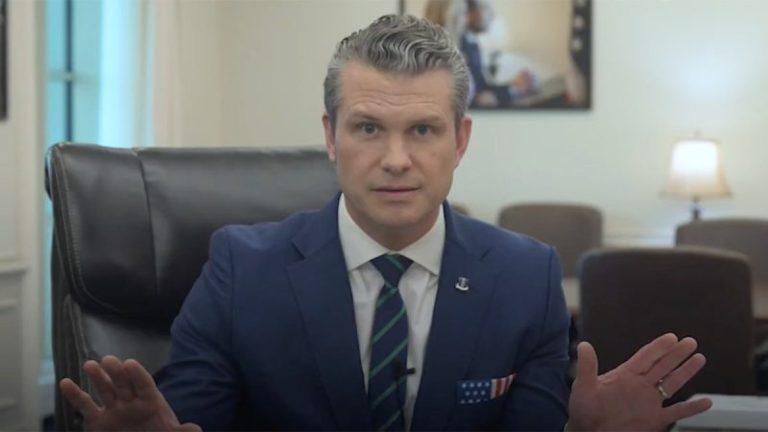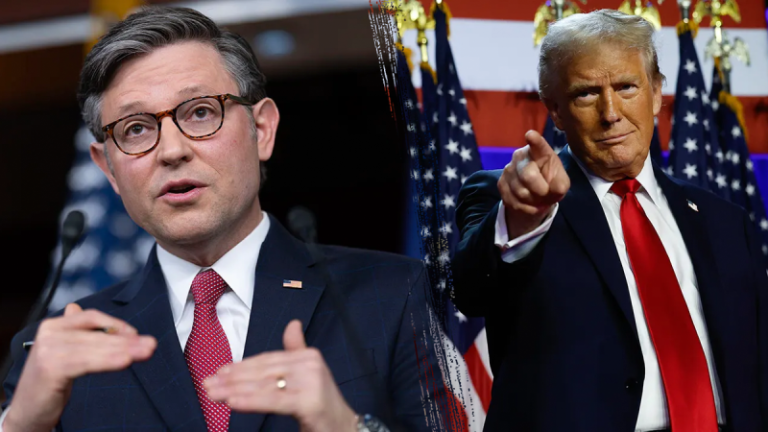New York Attorney General Letitia James on Monday said she is leading a coalition of 20 states in suing the Trump administration over its cuts to public health funding and the Department of Health and Human Services, describing the efforts in a press conference as the most ‘sweeping and unlawful assault on public health’ in U.S. history.
The lawsuit, filed by James and other state attorneys general, accuses the Trump administration of violating ‘hundreds’ of laws and regulations in attempting to dismantle the Department of Health and Human Services, both by firing thousands of HHS employees in an effort to slash its overall workforce by 20,000 people and shuttering crucial health programs across the U.S.
‘This administration is not streamlining the federal government; they are sabotaging it,’ James said Monday.
She used a press conference to highlight the risks these cuts pose for Americans in New York and across the country.
‘When you fire the scientists who research infectious diseases, silence the doctors who care for pregnant people and shut down the programs that help firefighters and miners breathe or children thrive, you are not making America healthy; you are putting countless lives at risk,’ James said.
‘This is not how government is supposed to work. These actions are dangerous, cruel and illegal. They defy Congress’s authority and they violate federal law. And that is why today I am leading a lawsuit joined by Democratic attorneys general across the country to stop this administration from tearing down our public health infrastructure.’
The plaintiffs, who filed the lawsuit Monday in the U.S. District Court in Rhode Island, are asking the court ‘to halt the unlawful dismantling of HHS, to stop the mass firings, and to restore the life-saving programs that millions of Americans depend on,’ James said.
New York is joined in the lawsuit by the attorneys generals of Arizona, California, Colorado, Connecticut, Delaware, Hawaii, Illinois, Maine, Michigan, Maryland, Minnesota, New Jersey, New Mexico, Oregon, Rhode Island, Vermont, Washington, Wisconsin and the District of Columbia.
Their lawsuit accuses the Trump administration in the lawsuit of erasing ‘decades of public health progress’ and leaving HHS ‘unable to execute many of its most vital functions.’
Such actions, they argue, are ‘in violation of Congress’s instructions, the U.S. Constitution, and the many statutes that govern the Department’s programs and appropriate funds for it to administer.’
These actions included terminating 10,000 full-time employees, collapsing 28 agencies into 15, and closing half of HHS’s 10 regional offices.
James cited many of these issues directly in the press conference Monday, taking aim at the administration for systematically depriving HHS of the ‘resources necessary to do its job.’
The government has ‘all but stopped testing for measles in the middle of an unprecedented measles outbreak,’ James said.
New York’s Wadsworth Center, she noted, is one of the ‘only labs in the country still equipped to detect rare infectious diseases’ and is ‘scrambling to fill the void left by a hollowed-out CDC.’
Her remarks come after HHS announced thousands of layoffs in March and April, including at the FDA, the CDC and NIH. The reductions were in keeping with a Department of Government Efficiency-led push for agencies to slash the size of the federal workforce and trim government spending, prompting criticism from Democrats and some Republicans.
These cuts included terminating HHS employees tasked with determining SNAP and Medicaid eligibility for low-income or disabled Americans; the firing of the CDC’s entire maternal health team; and the gutting of mental health and substance abuse services and personnel.
‘None of these layoffs were necessary to accommodate a funding shortfall – Congress’s appropriations have remained steady, or in many cases, grown in recent years,’ the plaintiffs said in their lawsuit.
‘All told, 20,000 full-time employees – almost twenty-five percent of HHS headcount – would be terminated in a few months to save, by Defendants’ own estimate, less than one percent of HHS expenditures.’
Plaintiffs in the lawsuit asked to halt HHS efforts to dismantle the HHS-led agencies and programs that were cut as a result of the reorganization. States are also seeking declaratory and injunctive relief to prevent what they described as the ‘unconstitutional and illegal dismantling of the Department.’
The lawsuit is not the first time James, a longtime foe of the current president, has sparred with Trump since the start of his second presidential term.
To date, she’s joined Democrat attorneys general in more than a dozen other lawsuits challenging his early actions.
This post appeared first on FOX NEWS

